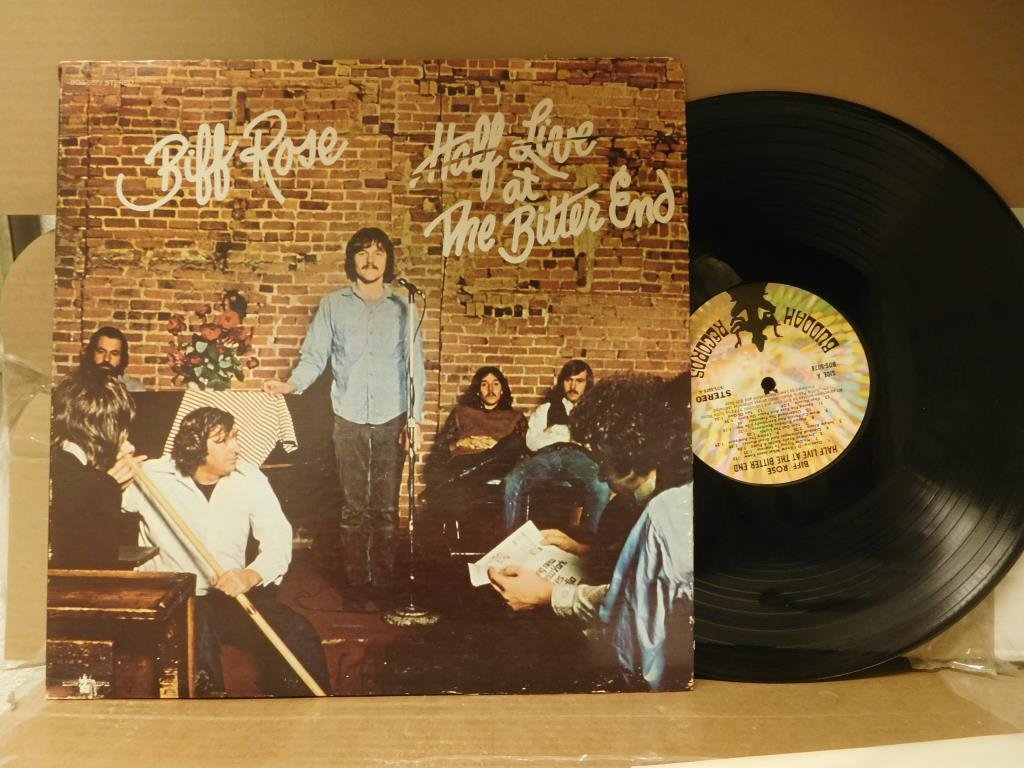

As Rose began appearing regularly at Los Angeles nightspots, he landed a contract with Tetragrammaton Records, a label co-founded by Bill Cosby, and his debut album, The Thorn in Mrs. After pulling up stakes and moving to Los Angeles, Rose landed a gig as a writer and performer on The Kraft Summer Music Hall, which ran for several months in 1966 the staff also included George Carlin and John Davidson. By the early '60s, Rose had relocated to New York City, and became a fixture on the Greenwich Village folk scene, playing bajo, singing songs, and cracking jokes he attracted enough of a following that he was profiled in the New York Times in November 1964. Something of a prodigy, Rose was performing in talent contests by the time he was four years old, and took part in school theater. Paul Conrad Rose III was born in New Orleans, Louisiana on October 15, 1937. In the '80s, Rose's public profile faded, but he kept performing, and in the 21st century he issued a steady stream of digital releases such as 2013's After Seven Come Eleven, 2015's Aunt Romulus and Uncle Remus, and 2017's The Gland Father. He also earned a cult following as a performer and was a frequent guest on The Tonight Show with Johnny Carson in the 70s. Rose's Side, featuring two modestly successful singles, "Buzz the Fuzz" and "Warm Your Heart," was his most successful release - but he fared better as a songwriter, and his tunes were recorded by artists as diverse as David Bowie, Tiny Tim, John Denver, and Pat Boone. Rose had mild success as a recording artist - his debut album, 1968's The Thorn in Mrs.

July-August 1971, was a last-minute addition to the LP, replacing “Bombers” (probably still the right call) Bowie opened his set at Aylesbury with it, on 25 September 1971.A songwriter, pianist, and comedian, Biff Rose was a cheerful anomaly in the rock & roll scene of the 1960s and '70s, a tunesmith whose music had more to do with classic stride piano than psychedelia or hard rock, and whose storytelling balanced whimsy and sentimentality against occasional bursts of surreal and deliberately confrontational humor. Wright, who had arranged Rose’s recording), Rick Wakeman gets the showcase piano solo and Bowie provides the saxophone.įirst performed at the BBC on 2 February 1970, and again on 21 September 1971 the Hunky Dory version, recorded ca. Mick Ronson does the light-orchestra arrangements (the LP sleeve credits the influence of Arthur G. In its way, “Fill Your Heart” is the most disturbing track on the record. Bowie, on Hunky Dory, is so committed to the song’s treacly philosophy that he descends into pure tastelessness-at times gurning like a gruesome holiday camp performer. Rose delivered those lines with the trace of a smirk, while Tiny Tim, who covered the song as the b-side of “Tiptoe Through the Tulips,” sang it with glee and amazement, as though he’d finally found a lyric that topped his own extravagant persona. But you can see why “Fill Your Heart” entranced Bowie-its lyric offers comfort and peace ( “fear is in your head/only in your head, so forget your head”), promising that the pain of consciousness can be alleviated by love, by losing yourself entirely in someone else. It goes far beyond the realm of squares, really: it seems best suited to appeal to delusional old people, toddlers and good-tempered dogs. Where the other Rose song Bowie covered, “Buzz the Fuzz,” was a hippie drug joke, “Fill Your Heart” is music for squares. Bowie seemed to adore “Fill Your Heart,” a collaboration between the hippie comedian Biff Rose and ’70s malignance Paul Williams: it was in his live sets by early 1970 and he led off the second side of Hunky Dory with it, his first cover song on record since “I Pity The Fool.”


 0 kommentar(er)
0 kommentar(er)
